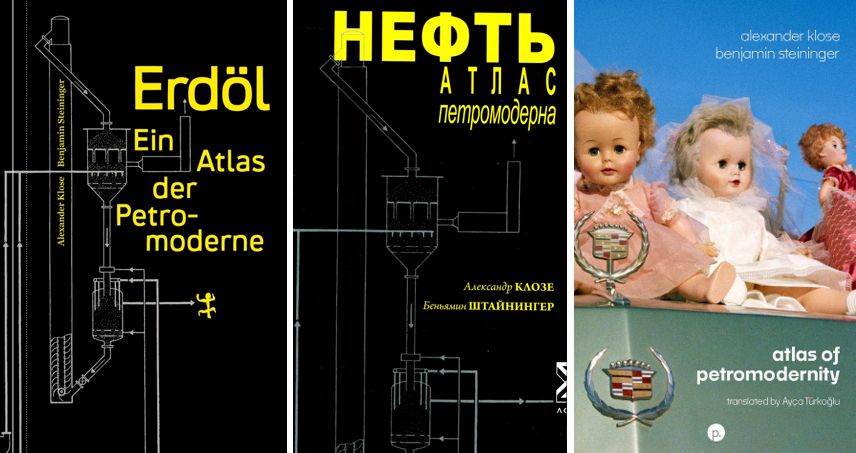
Erdöl. Ein Atlas der Petromoderne | Нефть. Атлас петромодерна | Atlas of Petromodernity
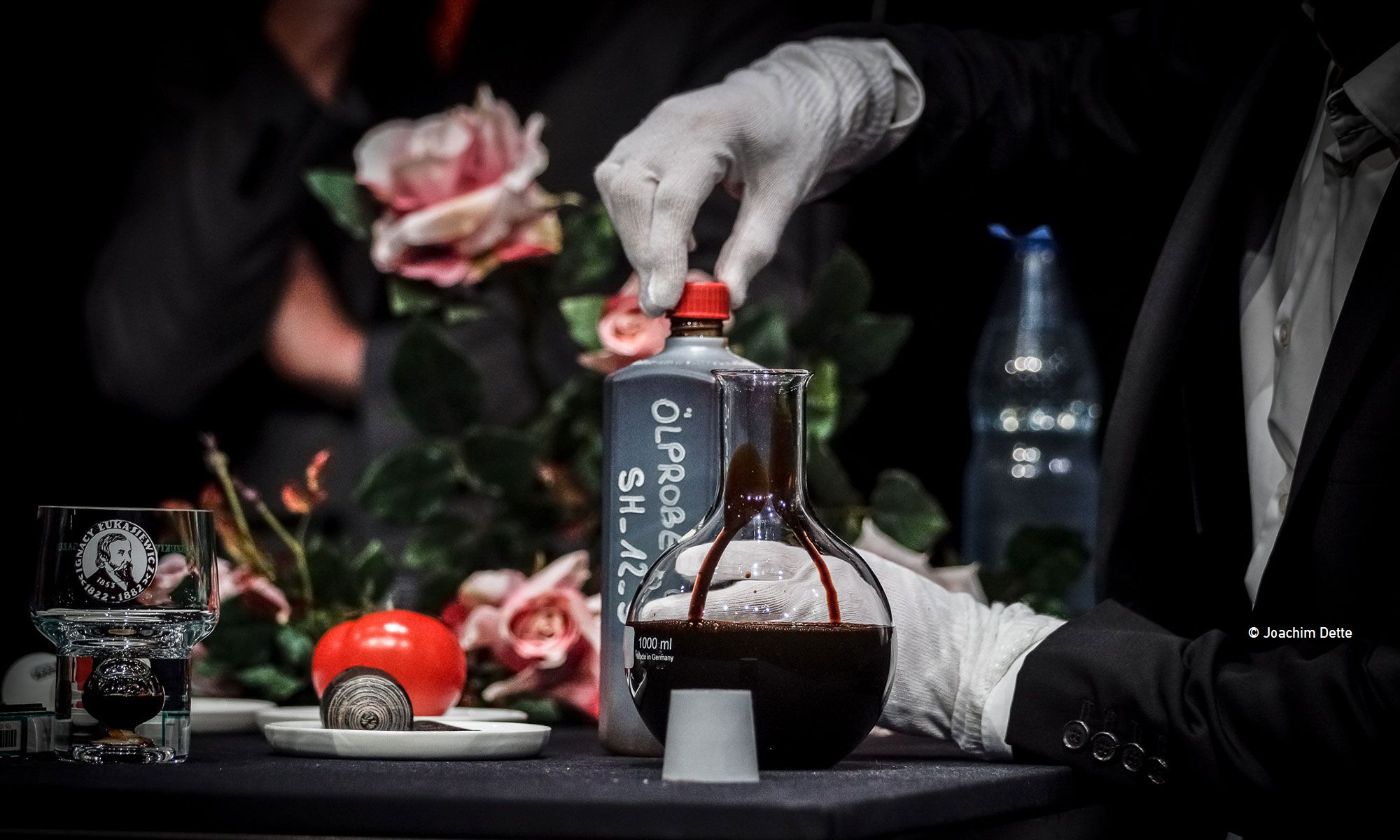
understanding petro modernity
(link zum pdf des Interviews hier)
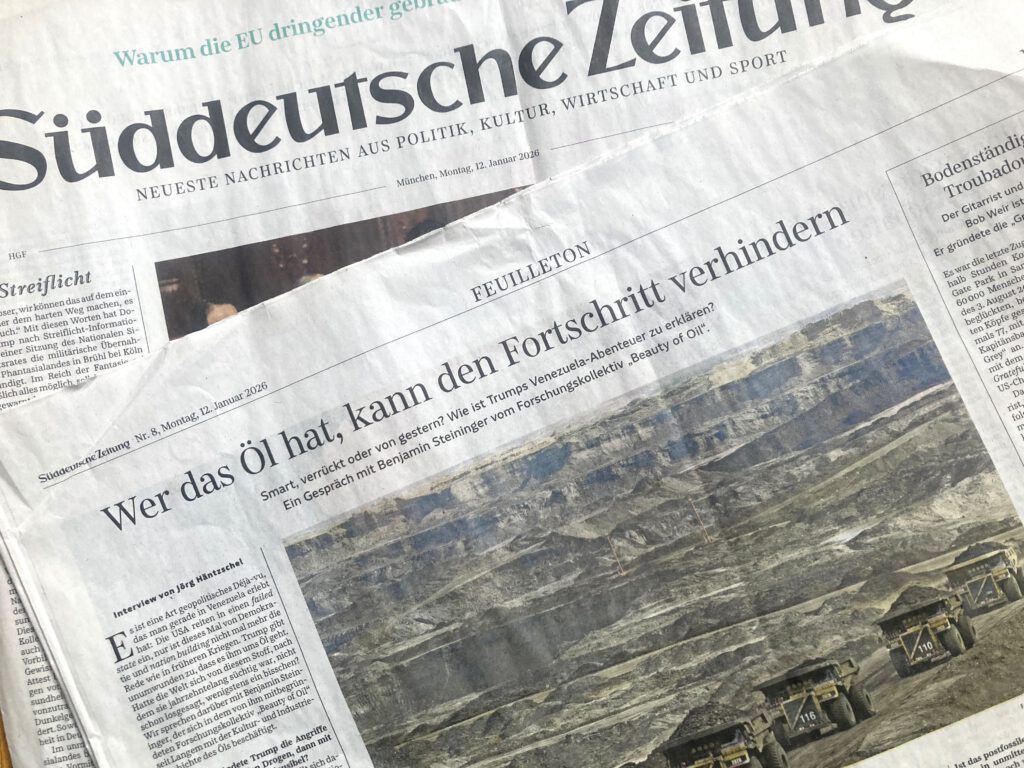
Öl war klarerweise einer der wichtigsten Rohstoffe des 20. Jahrhunderts. Aber was kann man aus den Werkzeugkästen der Geschichte für die Deutung dieser Tage und Wochen zwischen Venezuela, Ukraine und Grönland lernen? Die berechtige Scheu vor schnellen Antworten sollte nicht das Nachdenken über die Zusammenhänge von Geschichte und Gegenwart, Technik, Politik und Ökologie verhindern. (Link hier zum Beitrag auf SZ-Plus (paywall), bzw. zum pdf der Zeitungsseite (free) hier)
Two panels co-chaired by Alexander Klose and Benjamin Steininger within Petrocultures 2026 Dresden: »Situating Energy«, August 26-28, 2026
Please share and send proposals until January 18 2026!
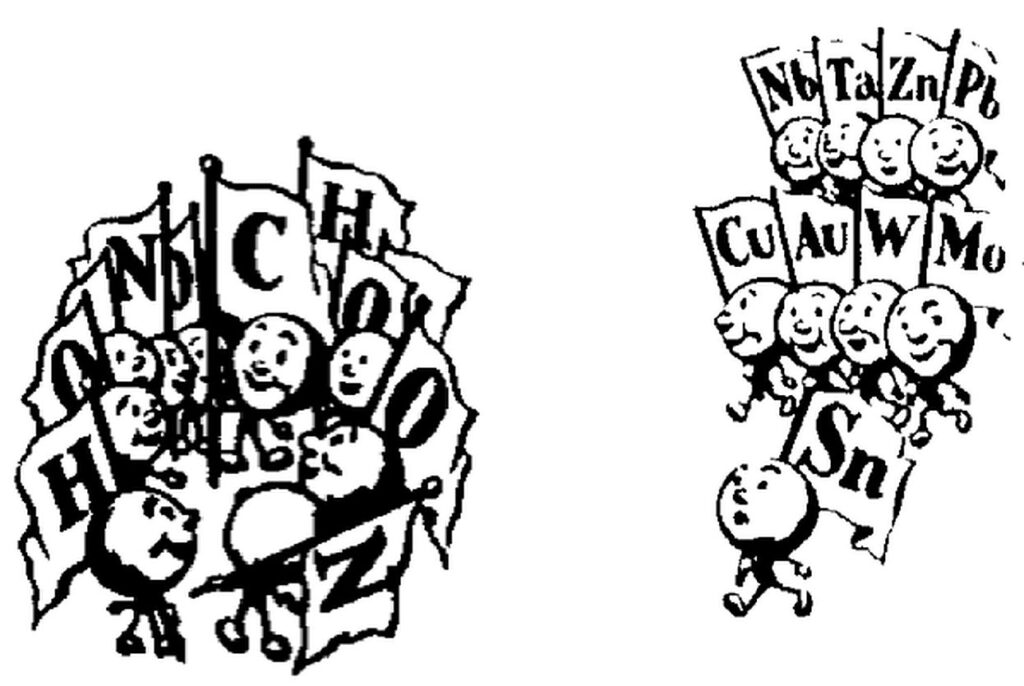
The plethora of new materials in the petromodern era—refined fuels, ammunition, fertilizers, pharmaceuticals, cosmetics, plastics—were fashioned as complex chemical-industrial products. Current proposals for an ecological and just transition moving away from fossil resources and other destructive forms of extractivism largely rest on the ‘green’ or ‘sustainable’ transformation of exactly these petromodern developments in chemical sciences and technology. However, despite its pivotal historical role in shaping the petromodern present, chemical technology has received little attention in petromodernity research.
With our panels we propose to read the programmatic Dresden call for “Situating energies” as a motivation to focus on the chemical sciences, technologies and infrastructures that provide energy and materials for all types of societal metabolisms— and on their social and cultural repercussions. In doing so, we investigate both the epistemologies behind chemical principles and technologies, as well as their geographical and historical situatedness—in our case in Central Europe, in Germany, in the former GDR, at the crossroads of historical experiences with different types of petromodernity: capitalist, NS, social-democratic, socialist, and post-Soviet.
The aim of our panel is to identify and analyze chemical-societal “double bonds” that combine perspectives on chemical technologies with perspectives on social, societal and political experiences. We therefore invite proposals to address chemical geographies and constellations from industry and scientific research to social and cultural aspects; from chemical factories and laboratories to bodies and landscapes. We encourage contributions from all fields of social and cultural research, as well as from chemistry, the humanities, history, and artistic or curatorial research. Although our focus is on Central Europe, we welcome contributions that deal with chemical geographies around the globe.
…
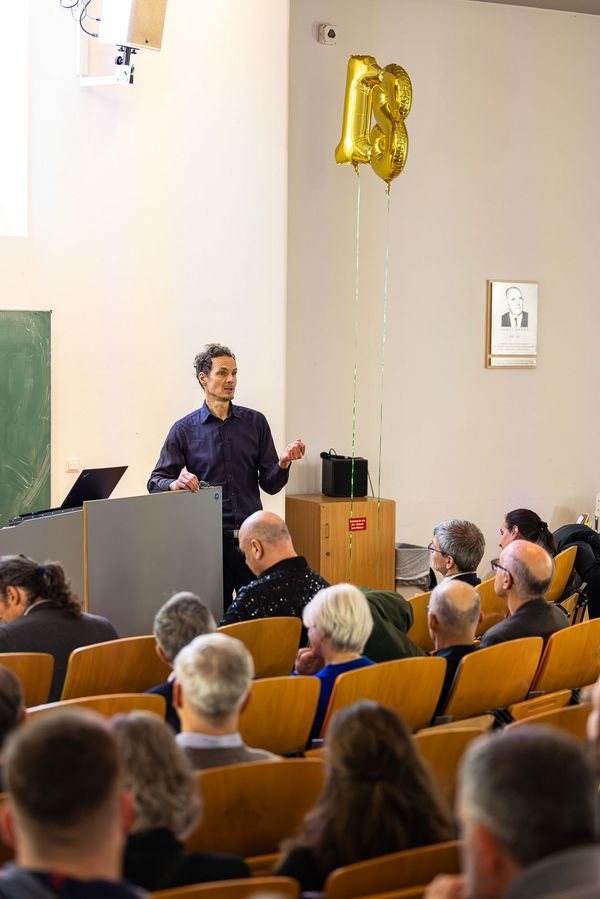
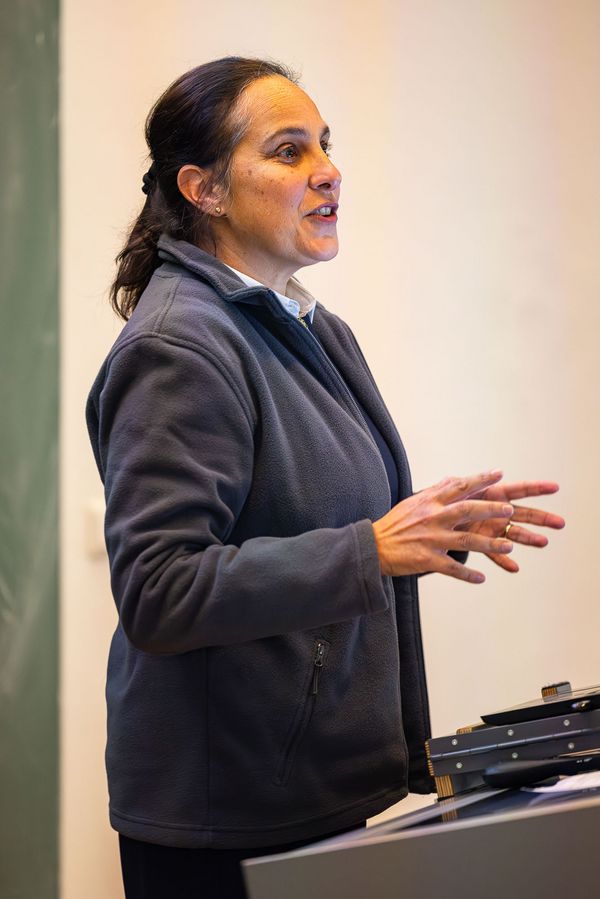
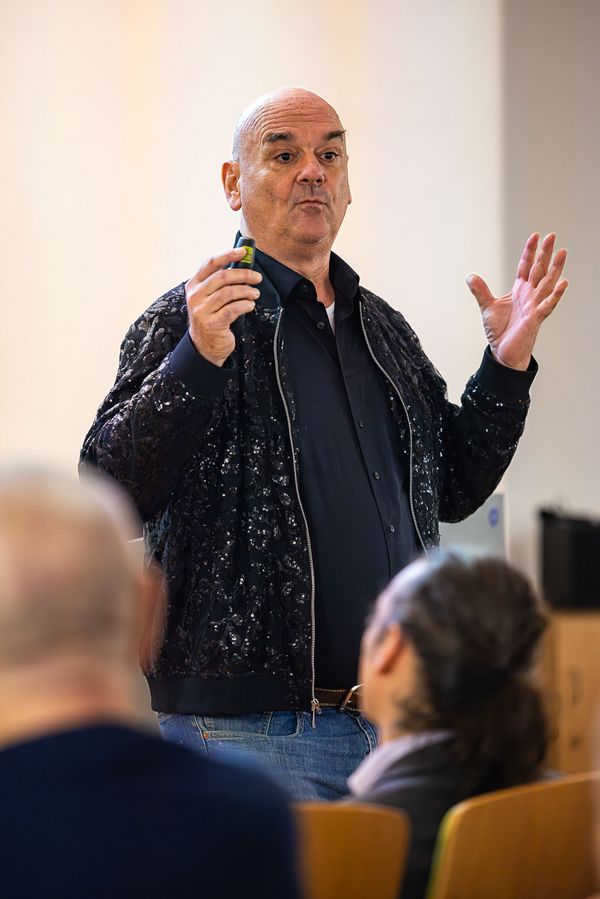
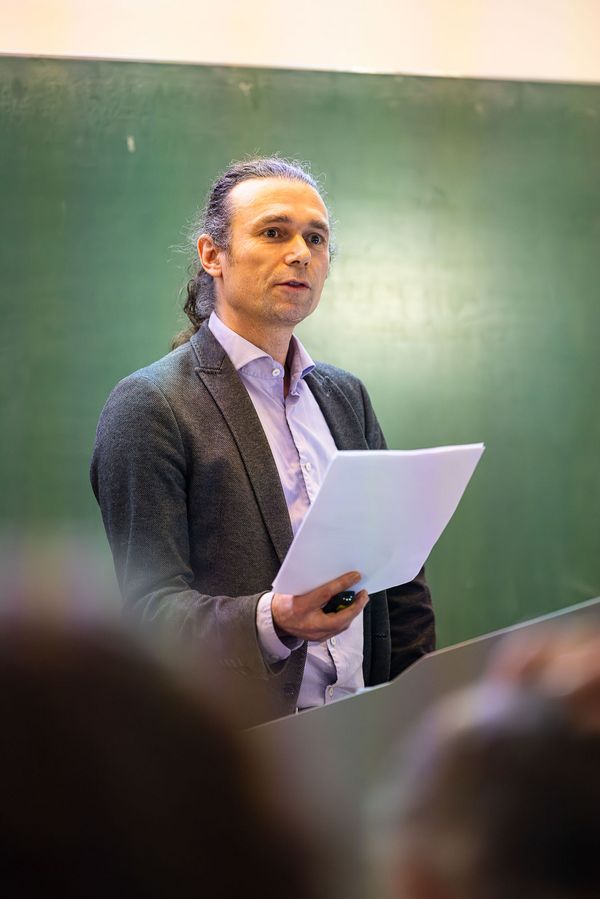
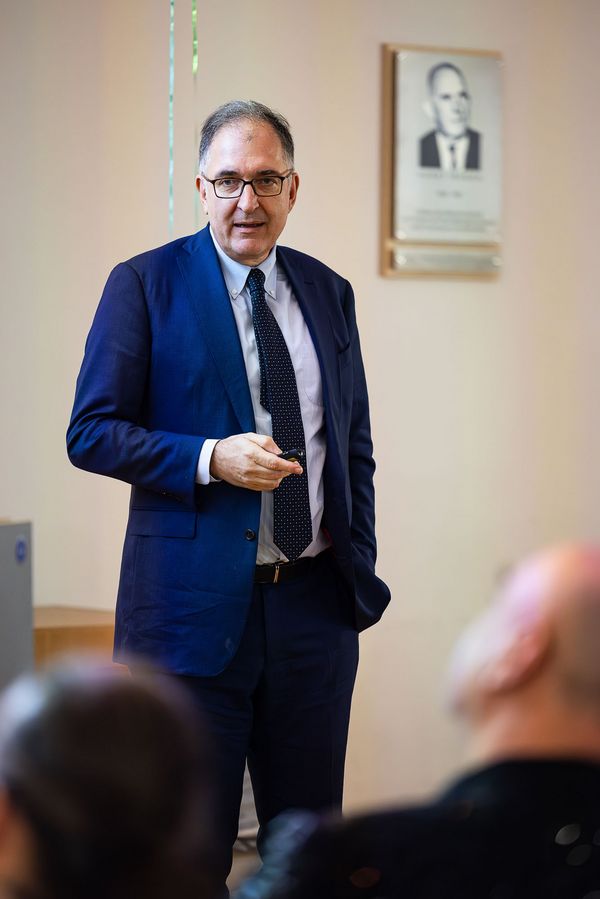
With speeches by Juri Rappsilber, Maria Andrea Mroginski, Matthias Driess, Peter Seeberger, and Benjamin Steininger, Cluster of Excellence UniSysCat celebrated its 18th anniversary at TU-Berlin.
Time, to recall the past of quite an era of outstanding catalysis research in Berlin since 2007 with UniCat and UniSysCat, and to also envision the future of a further transformation of chemistry and the respective role of research on industrial, chemical, and biochemical catalysis processes.
And high time for me, to warmly thank all UniSysCat-colleagues for their cooperation and generous support in the last seven years!
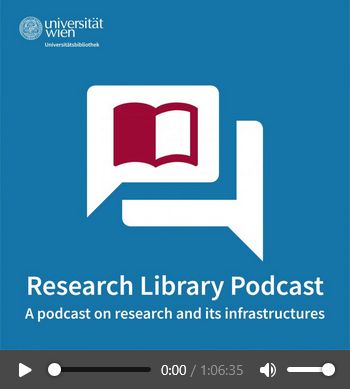
»Wie lassen sich Erdöl, Container und jene Infrastrukturen denken, die unsere Gegenwart ermöglichen – meist, ohne dass wir sie bewusst wahrnehmen? In der aktuellen Folge unseres Podcasts spreche ich mit Benjamin Steininger und Alexander Klose, die gemeinsam das Forschungskollektiv „Beauty of Oil“ bilden. Im Zentrum steht die Frage, wie sich die Petromoderne, ihre Logistik und ihre materiellen Grundlagen theoretisch fassen und erzählerisch sichtbar machen lassen.«
Link zum Podcast mitsamt sehr schönem Glossar der wichtigsten Begriffe des Gesprächs hier
Alexander Klose at Roundtable in University Paris 1, Sorbonne on »Exhibition making in the age of fossil fuels – beyond the petrochemical«, Dec. 5 2025
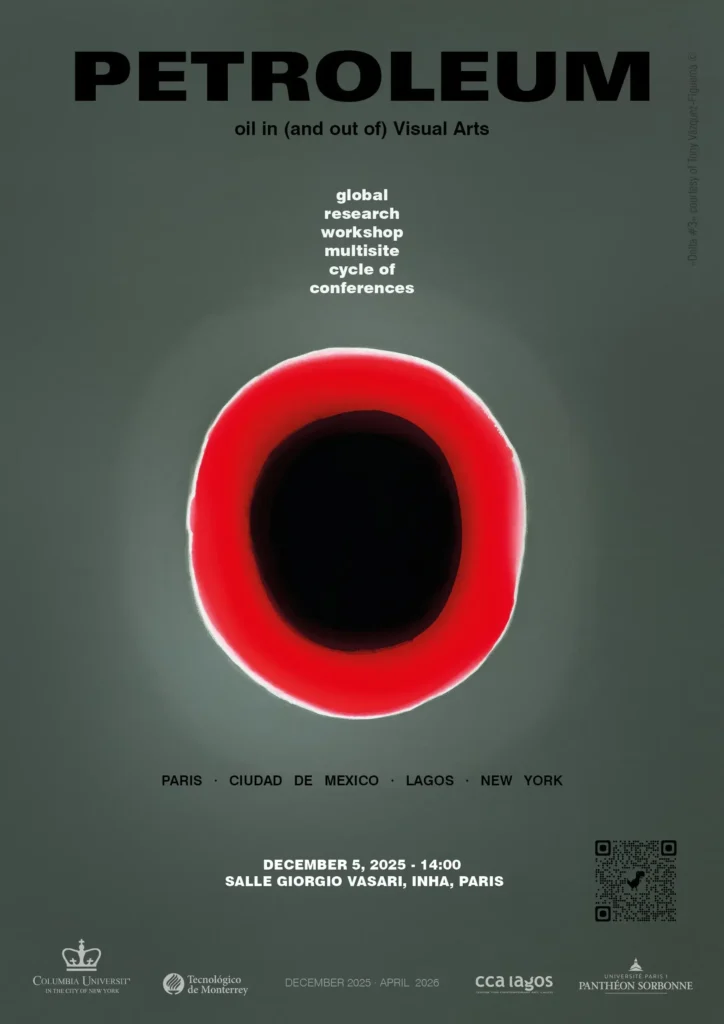
How is the imperative of energy transition changing the art world? How are artists, curators, critics, conservators and restorers working towards a world without oil? To answer these questions, we intend to bring together artists, activists, curators, researchers and other art world actors in four cities in Atlantic countries with strong links to the history of oil: Lagos, Mexico City, New York and Paris. Over the course of four half-days, we propose to discuss across fields of activities and continents recent developments in contemporary art practices linked to ecological objectives, as well as the transformation of imaginary images of oil in the visual arts.
1st in a series of four international workshops, 5 december 2025, 14h Salle Vasari, INHA
Chair : Lotte Arndt
Speakers : Anna Colin, Camille Richert (researchers and curators), Keren Detton (FRAC Grand Large Hauts-de-France director), Chaleur humaine, Triennale Art et Industrie de Dunkerque (2023) & Alexander Klose (researcher and curator) Research Collective Beauty of Oil
Find more information on the event in Paris as well as on the workshop series here.
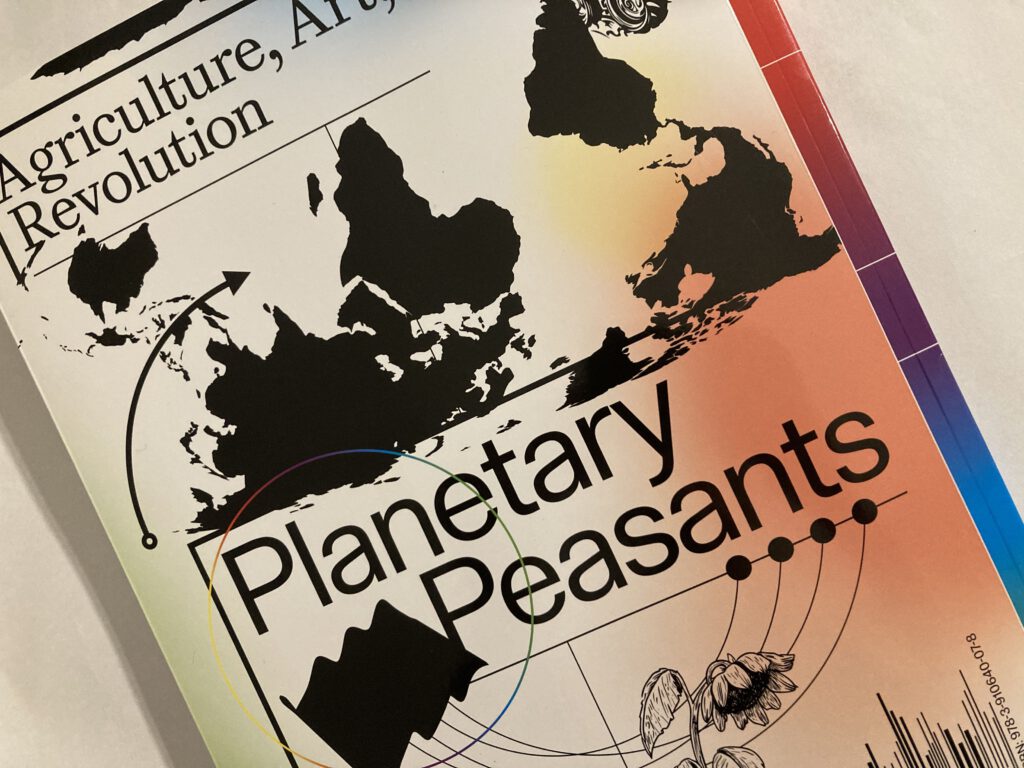
If all the ammonia plants used to produce agrochemical fertilizer were immediately shut down, a third of the world’s population would starve. Half the nitrogen molecules in our bodies have passed through a Haber-Bosch reactor. Industry now extracts as much nitrogen from the air as all natural bacterial processes on Earth combined. These staggering statistics on ammonia synthesis have been compiled by geographers such as Vaclav Smil and chemical historians like Jens Soentgen. It would be difficult to cite a chemical process with more troubling implications. It affects us more closely than we realize, and its reach is far greater than we might imagine.
The high-pressure synthesis of ammonia (NH3), in which a catalyst – usually a compound of iron (Fe), aluminum (Al) and potassium (K) – binds nitrogen (N) and hydrogen (H), was developed by BASF before the First World War. This process has since become one of the most problematical monuments to twentieth-century science and industry. The artificial molecules it generates, and the processes they drive, are omnipresent – not just in all ecosystems and human bodies, but at every level of twentieth-century history itself. The Haber-Bosch process is tied to not only global nutrition but also destruction on a global scale and vice versa. Even before they were used to manufacture artificial fertilizer, the first ammonia factories in Ludwigshafen and later Leuna supplied ammunition for the First World War. The production facilities built for this war of attrition were then repurposed for agriculture. ‘Bread and death from the air’ was coined to cover the ambivalence in the 1920s.
Industrial fertilizer production can be linked to large-scale and planetary contexts in two ways. The construction of its infrastructure requires planetary networks, processes and strategic considerations. And in turn, planetary networks, processes and strategic considerations arise from its products.
The technical process, the individuals involved, and the great wheels of world history which ammonia synthesis immediately set in motion after its development have been the subject of countless accounts – from academic histories of science and geography to sensationalist industrial novels printed in the hundreds of thou-sands, which from the 1930s to the 1950s mythologized German chemists. The story has all the hallmarks of a classic technological drama: ‘ingenious inventors’ such as Carl Bosch, tragic figures” like Fritz Haber – whose wife Clara Immerwahr shot herself with his service revolver as he refined chemical warfare – a world war and the ‘solution to world hunger’.
Yet the familiar narrative requires rethinking. The setting, the framework and the dilemma have shifted in recent decades. With the emergence of the Anthropocene and the realization that human-industrial activity is transforming Earth’s systems and natural history in the long term, ammonia synthesis also appears in a new light. Regarded for nearly a century as a technological triumph that alleviated global crises, it is now a planetary crisis in itself. Even as its destructive potential was acknowledged – most recently in the 2020 Beirut explosion, when an ammonium nitrate storage facility blew up – its role as an existential problem remained largely overlooked.
Almost all the hockey stick graphs mapping the Great Acceleration of Earth system and sociocultural parameters in the second half of the twentieth century – CO, emissions, biodiversity loss, erosion, ocean acidification, resource depletion – are directly linked to the global production of artificial fertilizers. The Green Revolution reshaped agriculture, fuelling population explosion, urbanization, and the transformation of entire eco-systems. Artificial molecules don’t merely shape world history for nations and humans (as was already evident around 1914); they also inscribe themselves into Earth’s history, affecting all other forms of life. And they do so in ways that deviate from their original intended purpose.
At the upper end of time scales that are only abstractly comprehensible to humans – at the level of the natural history of the future – previously unforeseeable processes must now be factored into the overall picture of ammonia synthesis’s effects. This, in turn, calls for a reassessment of all other scales embedded in the broader process. Artificially fertilized agriculture is planetary agriculture; the chemical industry of artificial fertilizers is a planetary chemical industry. The significance – and destructiveness – of this technology lies in its partly intentional, partly unintentional entanglement of vastly different scales, processes and systems.
Ammonia synthesis became a paradigmatic case for the concept of ‘planetary technology’, a term used by cultural and epistemological theorists since the 1920s. Under the impact of the attrition of the First World War, which was itself driven by this technology, writers such as Ernst Jünger, Walter Benjamin and Martin Heidegger explored the deeply ambivalent nature of a technoscience that not only endowed humanity with planetary power, yet also subjected it to ‘gigantic’ structures no longer within its control.
A century later, ammonia synthesis presents multiple, highly specific manifestations of the ‘planetary’ and the ‘technical. Its history is one of extremes. The Year Without a Summer in 1816, when volcanic ash from Mount Tambora’s eruption the previous year in Indonesia triggered global famines, inspired Justus von Liebig to establish the foundations of agricultural chemistry, recognizing the need for a precise understanding of the chemical requirements of plants and soils. Agriculture, he observed, depends on the continuous supply of phosphorus, potash and nitrate (i.e, nitrogen compounds). The depletion of soils had been understood since antiquity, yet solutions remained elusive, whether in Mesopotamia, Italy or North Africa. Soils that remain stable over long periods in their natural state depend on specific geological and climatic factors. In the Nile Valley, their fertility relies on the continental influx of mineral and organic silt from the tropics, while in the fertile loess plains and black earth regions in Ukraine and the American Midwest, they are sustained by fossil forest soils transported across continents by glaciers.
In the nineteenth century, global trade networks were established to supply German fields with nitrates unavailable in Europe, sourced from Chile or the guano islands of the Southern Hemisphere – a dependency that proved disastrous during wartime naval blockades but became surmountable once the atmosphere itself, above all the nitrogen it contains, was harnessed as a chemical resource. But according to Haber-Bosch, nitrogen could only be converted into ammonia at a pressure of 300 atmospheres and at high temperatures close to the point where iron begins to glow red-hot. Even then, a catalyst was required to accelerate the reaction. In Haber’s early experiments, this was osmium – one of the hardest, rarest and most expensive metals in the Earth’s crust. However, due to its extreme scarcity with the global supply at the time amounting to a mere 40 kilo-grams, it was entirely unsuitable for industrial-scale operations.
To conserve this limited stock, artificial metal compounds were developed and tested in 6,000 experiments conducted up until 1912 in search of a viable alternative. This led to a cascade of technical hybrids: food through plants through fertilizer through nitrogen through an iron-based catalyst enhanced with aluminium and potassium compounds, which is still in use to this day. Yet, despite the advent of electron microscopy and femtosecond lasers (1 fs = 0.000,000,000,000,001 sec) in the 198os, as well as Al-driven advances in physics and chemistry, its precise function on an atomic scale remains incompletely understood.
Thanks to its factories in Ludwigshafen-Oppau opened in 1913 and the Leuna works built in just nine months near Merseburg in 1917, Germany was able to fight the First World War – but also to lose it, as the Treaty of Versailles transferred its patents to the victorious powers. The petrochemical industry – driving the production of plastics, high-performance fuels and solvents – was built on an almost identical infrastructure through transatlantic collaboration between German coal chemistry and American petrochemistry, spearheaded by I.G. Farben and Standard Oil.
By the time of the postwar Wirtschaftswunder (economic miracle), ammonia synthesis had merged with petrochemistry: the hydrogen needed to synthesize ammonia from nitrogen no longer came from water but from cheap natural gas. Today, the process spans the globe – from China, the Volga and the Caribbean to Louisiana and the Persian Gulf – acting as a planetary reactor fusing atmospheric nitrogen with lithospheric hydrogen in order to feed it into the biosphere. However, nearly 70 per cent of the nitrates applied to fields don’t end up in crops, animals or on dinner plates. Instead, they leach into rivers and oceans, fuelling explosive algal blooms and creating oxygen-depleted dead zones from the Baltic Sea to the Gulf of Mexico.
Resolving the contradictions between growth and destruction – between what began as a kind of ‘liberation’ from age-old agricultural constraints during the Green Revolution and today’s critical, once again tightly constrained predicament, in which every scale, from the nitrogen molecule to the entire biosphere, is entangled – will take time, if it ever succeeds at all. The first step is to recognize, articulate and expose the contradictions. They are laid out before us, undeniable and immediate.
Consider this: within the EU, consumers can reliably expect food labels to disclose the presence of potential allergens such as celery or peanuts. Yet, in stark contrast, there is no equivalent labelling for the Anthropocene imprint on our plates – no indication of the chemical-biotic synthesis behind the ingredients we consume, a synthesis shaped by processes spanning all geohistorical layers, systemic spheres, and both quantitative and qualitative planetary scales.
The text is an overworked and extended version of the initial concept for the Werkleitz festival 2025 exhibition Planetary Peasants by Daniel Herrmann, artistic director of Werkleitz and Alexander Klose. It was written for and published in The Laboratory Planet No. 6, May 2024.
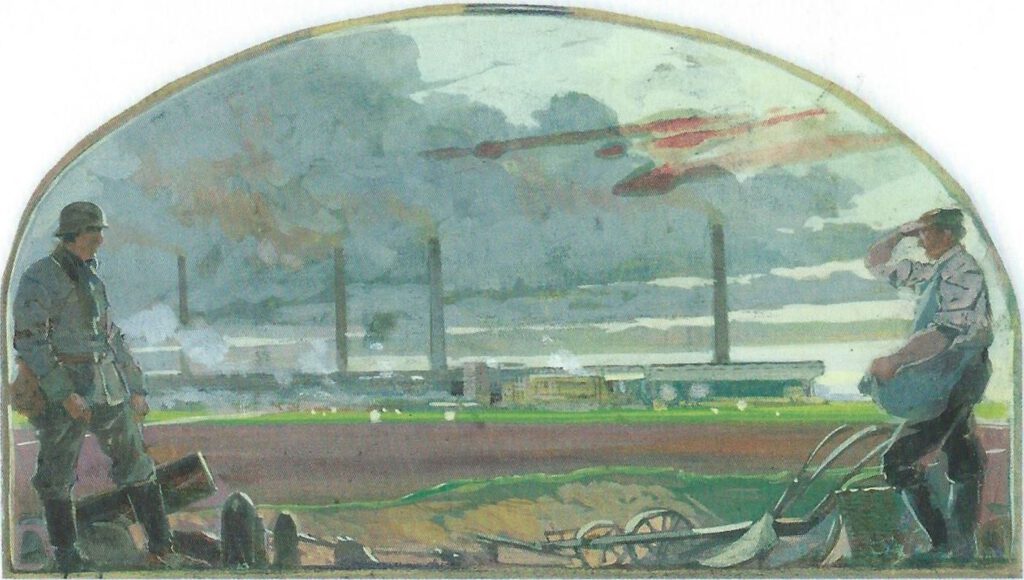
Spring 2025 marks the 500th anniversary of the German Peasants’ War. According to Marxist historiography it was the first revolution on German soil, the “climax of the early bourgeois revolution, [and] one of the greatest class battles in the age of feudalism”. … Other types of revolutions have reshaped the world since, though, namely socio-technological ones. … Parallel to political and socio-economical turns, a potentially even more profound revolutionary dynamic has transformed things around the globe, on all political sides: the development of modern agronomy and the mechanization, industrialization and “chemicalization” of agriculture. […]
The rendering of an “agricultural biological chemistry” and the development of the first artificial phosphate fertilizer by the chemist Justus von Liebig (1803-1873) in the 1840s, who taught and lived in Gießen in the state of Hesse-Darmstadt and later in Munich, were a pillar of the emerging chemical industries of Germany and other nations. When the new “Badische Anilin und Soda Fabrik” (BASF) Ammonia Synthesis Factory Merseburg opened in 1916 (…), its production was directed towards ammunition for the ongoing war (replacing the saltpetre from Chile that was no longer accessible because of the British Naval Blockade) and towards artificial fertilizers for an intensified agriculture.
The invention and large-scale deployment of artificial fertilizers, together with the mechanization and industrialization of work, instigated by far the most profound changes in agriculture since its invention. Following tractor tracks and artificial fertilizer traces of phosphor, potash and nitrogen leads us to regions around the globe and across political borders. The same machines were put to work, the same substances used, even in the strictly politically divided countries on both sides of the “iron curtain”. The tracks and traces of agriculture’s industrialization lead to fields of maximized productivity, as well as to exhausted and eroded soils and to areas of excessive accumulation akin to the dead zones that result from the over-nitrification of runoff water close to ocean estuaries around the globe. Today’s planetary condition is to a significant degree defined by such—human-made, intended or unintended—migration of organic and inorganic substances linked to agricultural activities: plants and animals, but also, and mainly, chemical compounds such as CO2 or ammonium-nitrates and their accumulation in the Earth’s ecosystems. …
full text of the article can be downloaded here.
an overview and documentation of the exhibition Planetary Peasants can be accessed here.

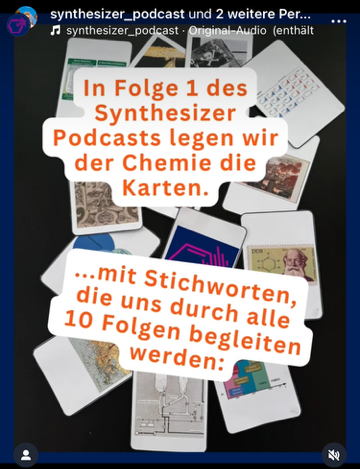
Chemie ist die Wissenschaft der Transformation. Was aber, wenn sich diese Wissenschaft selbst grundlegend transformieren, wenn Chemiker:innen ihr Forschungs- und Industriefeld neu definieren? Was, wenn das Transformationsziel nicht offen ist, sondern sich an Nachhaltigkeitszielen orientiert? Wie verändert die Chemiewende unsere Kultur und Gesellschaft?
Im Synthesizer Podcast beleuchten wir mit Expert:innen die Hintergründe und Herausforderungen dieser Transformation der Transformationswissenschaft hin zu einer grüneren und nachhaltigeren Chemie.
Gäste der ersten Staffel: Peter Seeberger / Klaus Kümmerer / Maria Andrea Mroginski / Jens Soentgen / Falk Harnisch / Annika Jahnke / Matthias Driess / Klara Winkler & Christopher Blum / Anna Isabel Becker // Link zu allen zehn Folgen hier // und überall wo es podcasts gibt: spotify, youtube, und seit kurzem auch bei wissenschaftspodcasts.de

Chemie umgibt uns überall – und doch denken viele nur an Schulunterricht und Reagenzgläser. In dieser Folge geht es darum, warum wir eine ‘Chemiewende’ brauchen, wie Chemie nachhaltiger werden kann und welche Rolle Katalyse dabei spielt. Beleuchtet werden die Herausforderungen der ‘Defossilisierung’ (‘De-Carbonisierung’ würden Chemiker*innen nie sagen, denn auch alle nachhaltige Chemie arbeitet mit Kohlenstoff), innovative Materialien und die Frage, ob wir mit Chemie die Welt retten können. Dabei geht es nicht nur um Forschung, sondern auch darum, wie wir diese in die Praxis bringen – mit viel Innovationsgeist und Mut zur Veränderung.

Petromoderne Anthropologie
Ausgangspunkt ist unser ‘Atlas der Aetromoderne’. Wir erklären Form, Intention und Gewinn einer Herangehensweise, die es erlaubt, zwischen zeitlichen Skalen und räumlichen Maßstabsverhältnissen zu springen und Verbindungen herzustellen zwischen scheinbar heterogenen oder weit auseinanderliegenden Wissens- und Erfahrungsfeldern: vom molekularen zum planetarischen, vom kleinen technischen Detail zur globalen Infrastruktur, vom Knacken einer Schallplatte zum Donnner von Kanonen, von einer getuschten Wimper zu einem Meeresstrand aus Plastikgranulat, vom Körperinneren zum Erdäußeren.
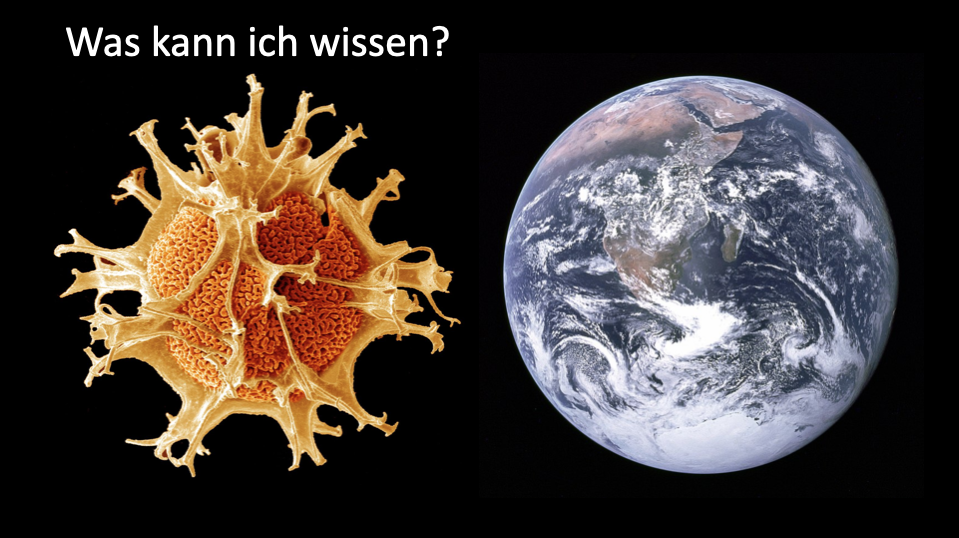
Die exzeptionelle Dynamik der Epoche der Moderne − was wir wissen, wie wir leben, was wir erwarten − hängt auf vielfältige Weise an der Nutzung fossiler Naturgeschichte in Form von Kohle, Öl und Gas.
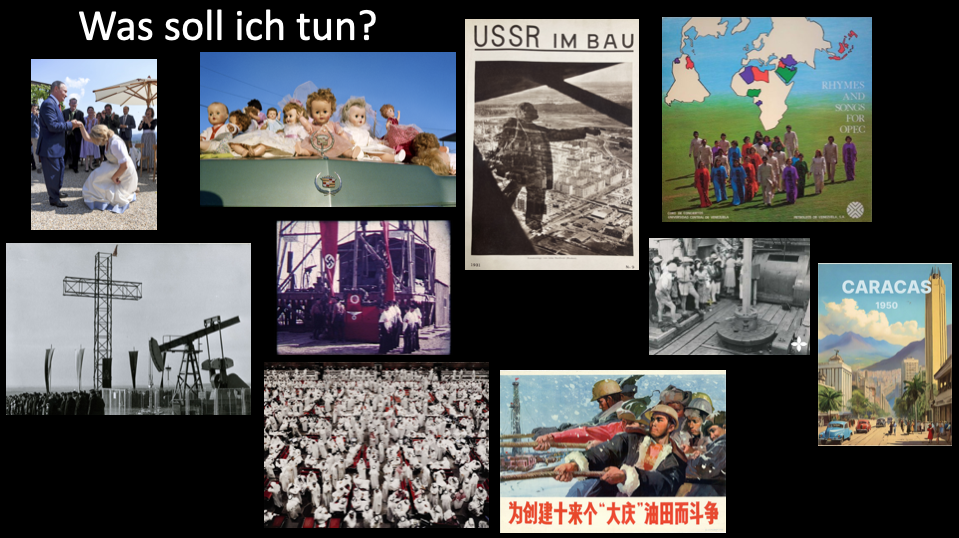
Die Moderne ist eine ‘Petromoderne‘ in nahezu all ihren Errungenschaften, Abgründen und Widersprüchen. Um die Position des Menschen in dieser Epoche zu deuten, um zu ermitteln, was wir hinter uns lassen sollten, aber auch, worum es zu kämpfen gilt, müssen alle Skalen zwischen molekularen, technischen, historischen, kulturellen und planetarischen Prozessen zusammengedacht werden.
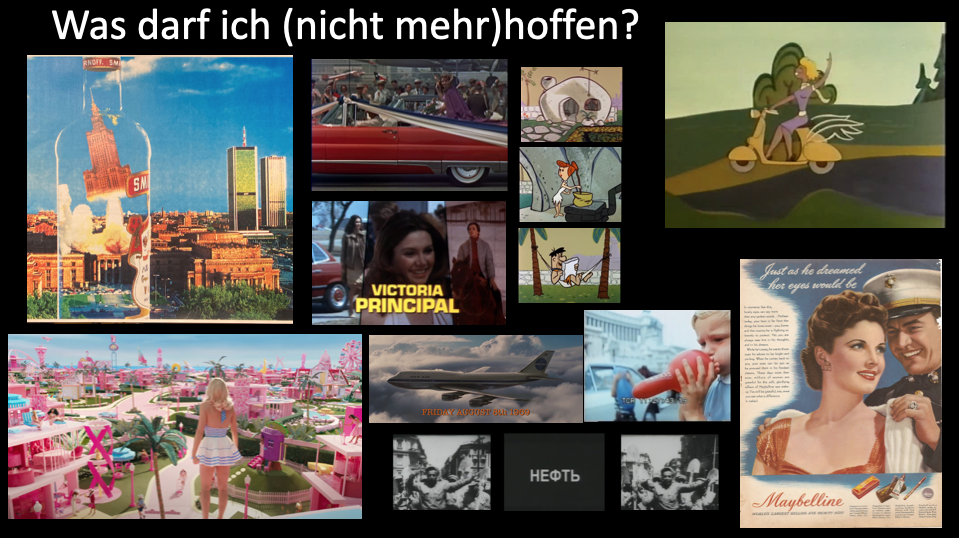
Nur wenn wir ‘fossile Vernunft’ als solche verstanden haben, können wir unsere Gesellschaften postfossil weiterentwickeln. Denn der notwendige Abschied von fossilen Energieträgern betrifft weit mehr als nur Mobilität und Heizung.
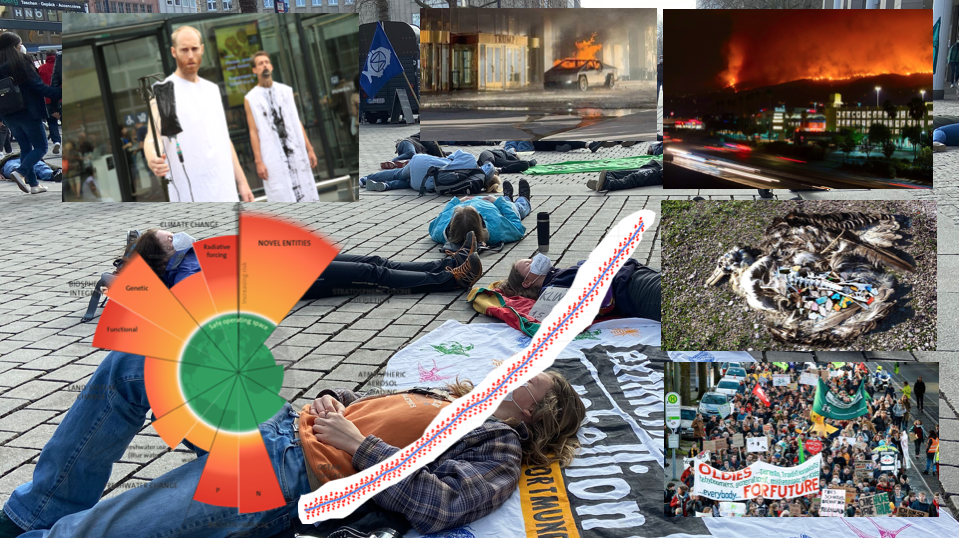
Die conditio humana, so unsere These, in die die Menschen der industriellen Zivilisation eingetreten sind, und aus der heraus sie die gewaltige Aufgabe haben, Verantwortung für den gesamten Planeten zu übernehmen und ihr zukünftiges Handeln danach auszurichten, ist eine petromoderne conditio. angemessene Anthropologien dafür sind aber erst im entstehen (etwa im Begriff der ‘Geoanthropologie’).
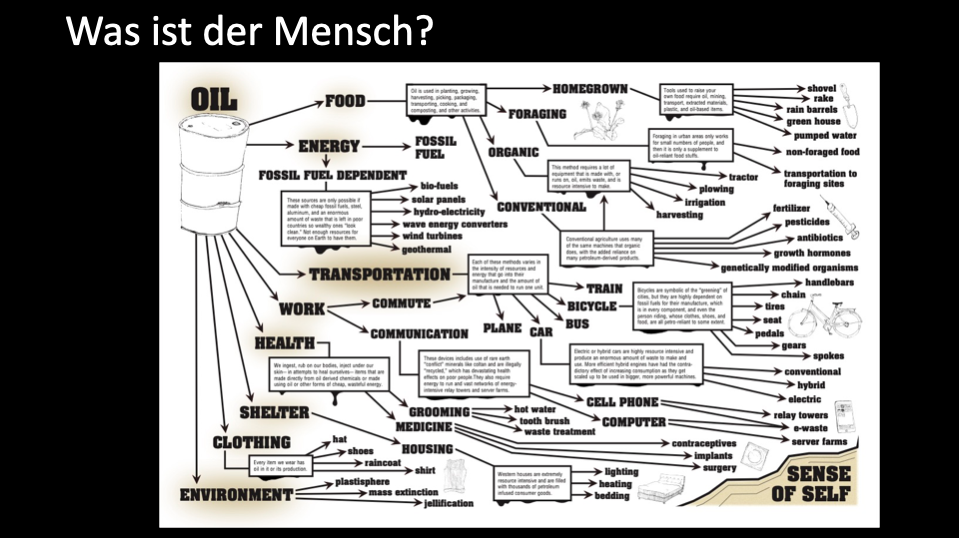
Mehr noch als der nicht zuletzt geschichtsphilosophische Begriff des Anthropozän erlaubt es der Blick über den Begriff der Petromoderne, die materiellen Voraussetzungen der Technologien und Handlungsweisen, Denkmuster und Ansprüche, die unsere gegenwärtige Lage definieren, zu erkennen und zu benennen. er setzt keinen einheitlichen ‘Anthropos’ voraus, sondern folgt den sehr unterschiedlichen, petromodernen Techniken, Geografien, Politiken rund um den Globus und durch die Geschichte, um herauszufinden, welche Mensch-Erde-Interaktionen dort jeweils wirksam sind.
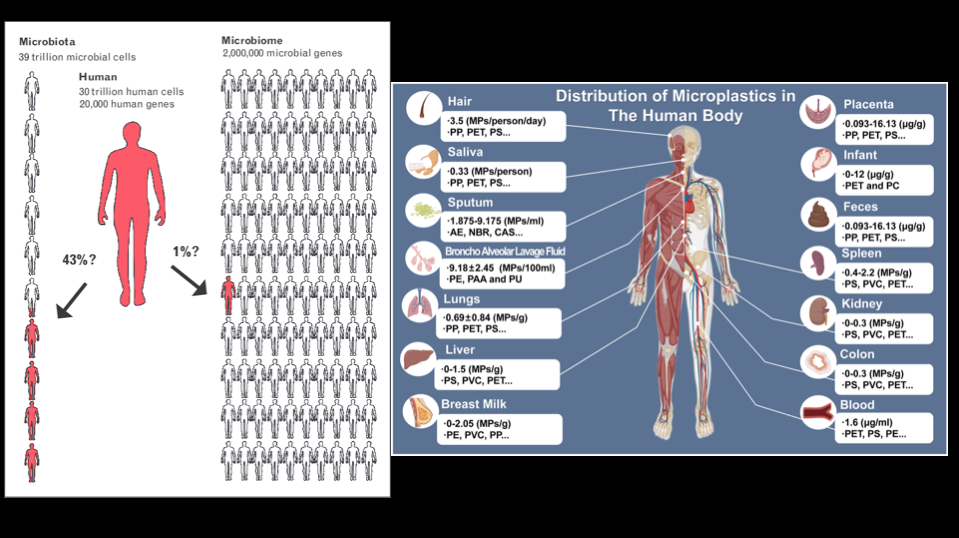
Link zum Archiv der Veranstaltung
Pdf der Veranstaltungsreihe Über Leben im Anthropozän zum download